July 12, 2017
Mayor launches initiative to enhance the design of Londons buildings and spaces 0
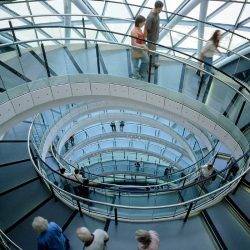 The Mayor of London, Sadiq Khan, has this week launched his Good Growth by Design programme to ‘enhance the design of buildings and neighbourhoods for all Londoners’. In a speech at the London School of Economics, the Mayor spoke of his vision for the future of London as the city’s population heads towards 10 million people. In what is claimed to be his first major intervention on this topic, the Mayor is calling on London’s architectural, design and built environment professions to help realise his vision of London as a city that is socially and economically inclusive as well as environmentally sustainable. According to the Mayor’s office, the Good Growth programme will leave a legacy of world-class buildings, outstanding public realm and large-scale regeneration for Londoners of the future.
The Mayor of London, Sadiq Khan, has this week launched his Good Growth by Design programme to ‘enhance the design of buildings and neighbourhoods for all Londoners’. In a speech at the London School of Economics, the Mayor spoke of his vision for the future of London as the city’s population heads towards 10 million people. In what is claimed to be his first major intervention on this topic, the Mayor is calling on London’s architectural, design and built environment professions to help realise his vision of London as a city that is socially and economically inclusive as well as environmentally sustainable. According to the Mayor’s office, the Good Growth programme will leave a legacy of world-class buildings, outstanding public realm and large-scale regeneration for Londoners of the future.





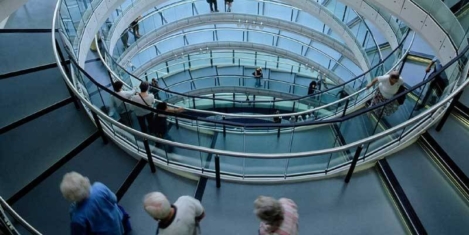













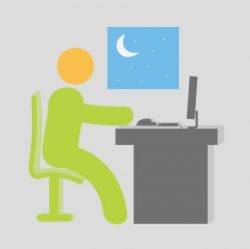 Employees coming into work when sick are contributing to a rising trend of ‘presenteeism’ across the UK, with more than half (52 percent) of UK workers admitting to going to work when their performance is negatively affected by work-related health issues, a new survey claims. A third (34 percent) of workers have even considered moving jobs due to the negative impact of their work environment on their health – the highest percentage across Europe. The report from Fellowes, published to coincide with World Day for Safety and Health at Work, argues when a worker is present but not able to perform their function properly, it compromises their productivity. With most employees continuing to work at sub-par levels rather than taking days off to recover, this also prolongs the effect of illness. Subsequently, businesses are experiencing a detrimental knock-on impact on the quality and volume of work produced, with a further impact on overall business performance.
Employees coming into work when sick are contributing to a rising trend of ‘presenteeism’ across the UK, with more than half (52 percent) of UK workers admitting to going to work when their performance is negatively affected by work-related health issues, a new survey claims. A third (34 percent) of workers have even considered moving jobs due to the negative impact of their work environment on their health – the highest percentage across Europe. The report from Fellowes, published to coincide with World Day for Safety and Health at Work, argues when a worker is present but not able to perform their function properly, it compromises their productivity. With most employees continuing to work at sub-par levels rather than taking days off to recover, this also prolongs the effect of illness. Subsequently, businesses are experiencing a detrimental knock-on impact on the quality and volume of work produced, with a further impact on overall business performance.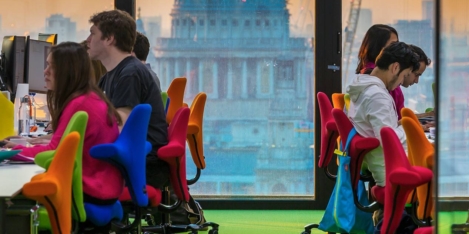


 Today (29 March) the Prime Minister triggers Article 50 to begin the UK’s exit from the European Union, and a new piece of research claims that almost two thirds (62 percent) of HR professionals expect this to impact their HR strategy and more worryingly, over a third (35 percent) say that the leave vote will impact the profits of their business. According to the research from employee benefits specialist Secondsight, 37 percent have opted not to hire over the coming year, and 39 percent agreed that recruiting the right people into their business will now be more difficult than before the decision to leave was made. However, on a more encouraging note, 95 percent of the HR professionals surveyed will see their budget rise in 2017, and 18 percent plan to introduce new benefits in the year ahead.
Today (29 March) the Prime Minister triggers Article 50 to begin the UK’s exit from the European Union, and a new piece of research claims that almost two thirds (62 percent) of HR professionals expect this to impact their HR strategy and more worryingly, over a third (35 percent) say that the leave vote will impact the profits of their business. According to the research from employee benefits specialist Secondsight, 37 percent have opted not to hire over the coming year, and 39 percent agreed that recruiting the right people into their business will now be more difficult than before the decision to leave was made. However, on a more encouraging note, 95 percent of the HR professionals surveyed will see their budget rise in 2017, and 18 percent plan to introduce new benefits in the year ahead.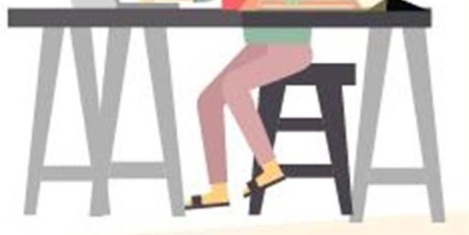
 Long working hours are embedded into Small and medium sized firm’s (SME) culture, new research by AXA PPP healthcare has claimed, with 47 percent of employees in SMEs across the UK regularly working four or more hours of overtime per week, 27 percent of these putting in seven or more hours and for half (52 percent), the extra hours are unpaid. In addition, 22 percent of employees take fewer than 30 minutes for lunch, 19 percent have cancelled family time and 19 percent have missed a child’s event such as a school play due to working over and above their contracted hours. Over half (54 percent) of employees have continued to work after putting children to bed. With Britain’s small and medium sized firms making up 99.9 percent of the UK’s private sector businesses, employing nearly 3/5 of its workforce and accounting for 48 percent of the turnover this accounts for a lot of workers.
Long working hours are embedded into Small and medium sized firm’s (SME) culture, new research by AXA PPP healthcare has claimed, with 47 percent of employees in SMEs across the UK regularly working four or more hours of overtime per week, 27 percent of these putting in seven or more hours and for half (52 percent), the extra hours are unpaid. In addition, 22 percent of employees take fewer than 30 minutes for lunch, 19 percent have cancelled family time and 19 percent have missed a child’s event such as a school play due to working over and above their contracted hours. Over half (54 percent) of employees have continued to work after putting children to bed. With Britain’s small and medium sized firms making up 99.9 percent of the UK’s private sector businesses, employing nearly 3/5 of its workforce and accounting for 48 percent of the turnover this accounts for a lot of workers.







May 3, 2017
Wiring your brain to the Internet? What could possibly go wrong? 0
by Christopher Markou • Comment, Technology, Wellbeing
(more…)